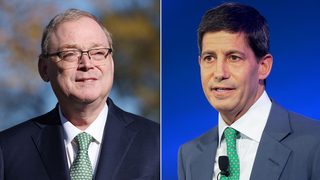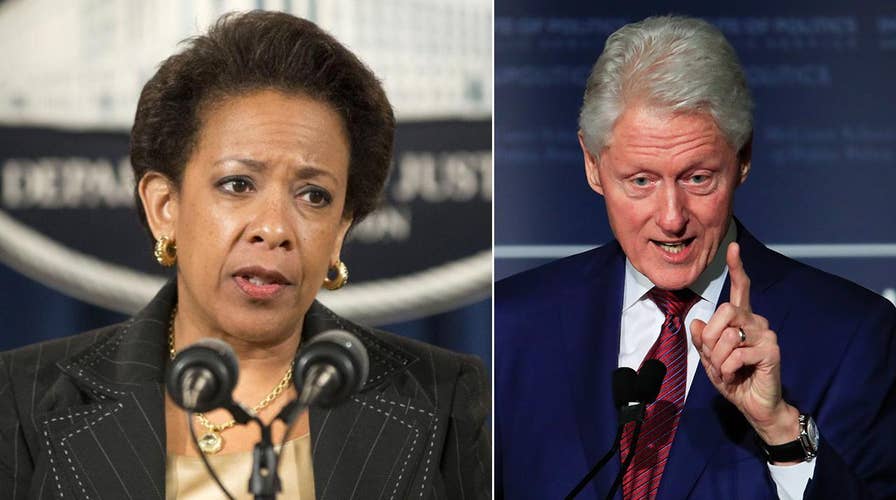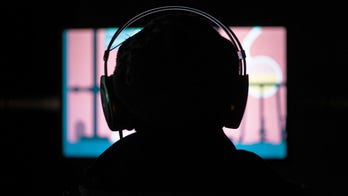Clinton-Lynch tarmac meeting triggered FBI hunt for leaker
American Center for Law and Justice says documents show FBI was more focused on keeping the meeting quiet than the meeting itself.
The revelation last year of an unorthodox tarmac meeting between former President Bill Clinton and then-Attorney General Loretta Lynch set off a frenzied scramble at the FBI to track down the source, newly released documents show.
Conservative watchdog group Judicial Watch, which on Thursday released 29 pages of FBI emails related to the 2016 meeting, said the messages show officials were more concerned about the leak than the substance of the report.
“These new FBI documents show the FBI was more concerned about a whistleblower who told the truth about the infamous Clinton-Lynch tarmac meeting than the scandalous meeting itself,” Judicial Watch President Tom Fitton said in a statement.
The FBI initially claimed it had no documents pertaining to the meeting, until uncovering the files later turned over to Judicial Watch.
The watchdog group, in releasing the files, said FBI officials sent a flurry of emails after the meeting was reported in New York's Observer.
One email sent from an unidentified FBI account on July 3, 2016 said, “We need to find that guy” and bring him or her before a supervisor. Another said the source should be banned from working security details.
Officials speculated that the source of the leak was a Phoenix police officer. One official said they contacted the Phoenix office and would try to “stem any further damage.”
One official, in a July 2 email, said the article represented a "breach in security protocol" and the Phoenix division would be pressured to "identify the source of the breach."
Judicial Watch said all names on the emails were redacted and there is no documentation showing concern over the meeting itself.
The tarmac meeting fueled Republican complaints at the time that Lynch had improperly met with the husband of an investigation subject, just before the probe into Hillary Clinton's personal email use was completed with no charges filed.
Fired FBI Director James Comey, in Senate testimony, described the tarmac meeting as problematic. The tarmac meeting came days before Comey held a news conference informing the media that Hillary Clinton would not be charged.
Comey in July 2016 said Clinton was “extremely careless” in handling classified and other emails on the servers but recommend no criminal charges -- a conclusion Lynch accepted.
Lynch later expressed regret that she sat down with Bill Clinton while his wife was under federal criminal investigation, a chance encounter she acknowledged “cast a shadow” on the public’s perception of a case bound to influence the presidential campaign.
“I certainly wouldn’t do it again,” Lynch said of the meeting.













































